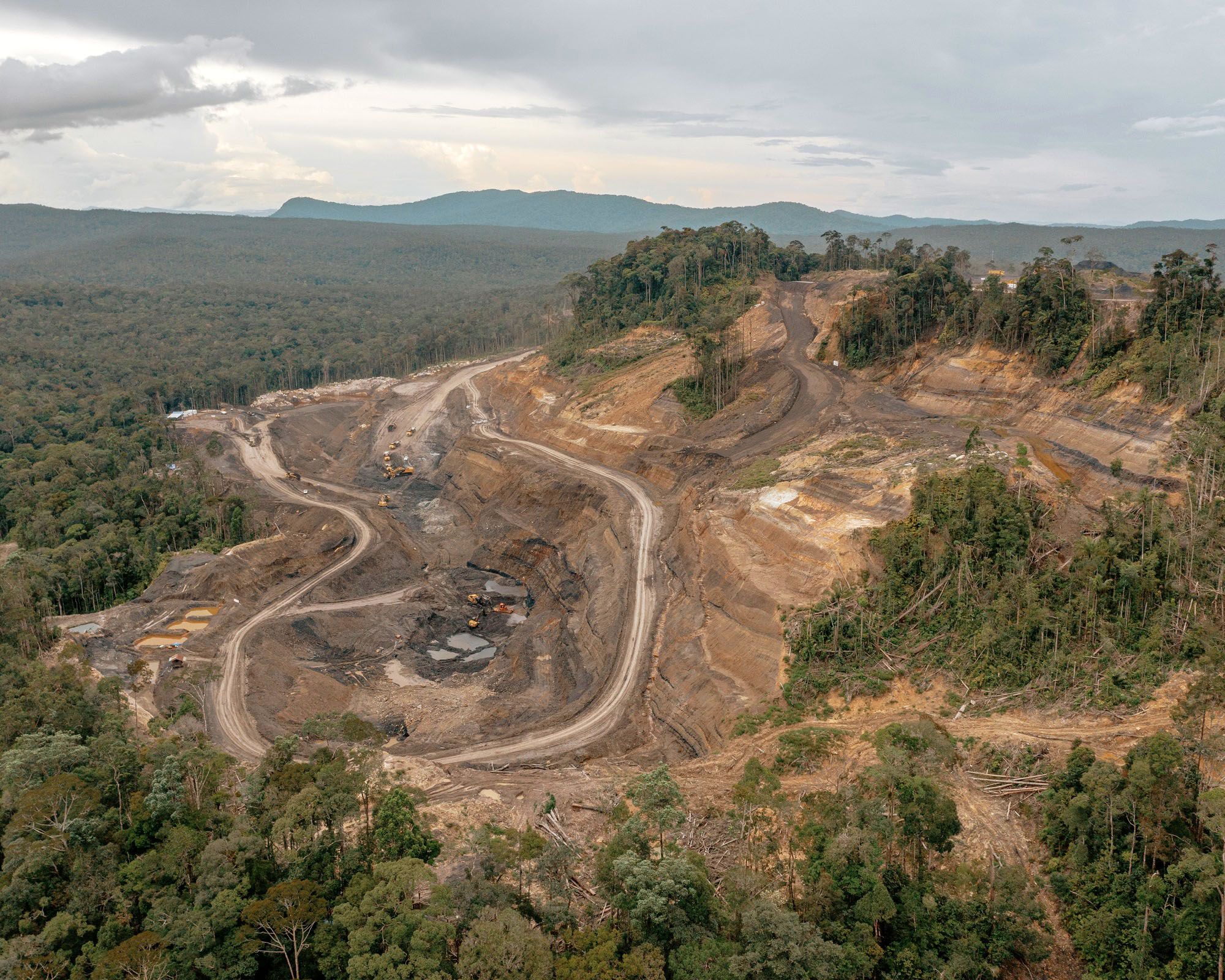Borneo, the new frontier of Swiss coal
Zurich, Lausanne, 19. June 2023

After the timber and palm oil industries, Borneo’s rainforest is facing a new enemy – coal. Among the mines that are scattered around this unique ecosystem, including those belonging to Geneva-based Mercuria, there is a company that operates on behalf of a conglomerate based in Zug.
With support of the Basel-based Bruno Manser Fund, Public Eye and the Indonesian NGO Walhi travelled to the village of Tumbang Olong. The aim was to investigate Borneo Prima’s activities at the mine that produces 2.3 million tonnes annually. Since it opened in 2019, the native Dayak community has suffered the full impacts of the mining activity – with the dust caused by the tens of thousands of trucks crossing the village each year, and the contamination of the rivers that are the only water source for some 900 inhabitants. According to testimonies, the situation becomes severe in the rainy season, as water carries coal and dust to people’s homes.
At Tumbang Olong, Borneo Prima has exploited the Dayak’s tradition of passing information orally – which results in a lack of land titles – to grab their land. For four years, health statistics in the region have been worsening and respiratory problems are now responsible for 30% of consultations at the local medical centre. An environmental impact assessment by Borneo Prima, dated 2013, shows that the company already knew that its activities would have «a significant negative impact» on water quality. But nothing was done to protect the population and nature. At the heart of Borneo, the rainforest is home to over 6,000 endemic plants and numerous endangered species. Coal mines threaten this ecosystem and there are few or no economic benefits for the local community.
The Bruno Manser Fund has been denouncing this scandal for years. In February 2022, the chair and administrator of the Zug-based conglomerate IMR Holding, the lawyer Hans-Rudolf Wild, said in the Swiss press that the company was no longer involved in Borneo Prima. Public Eye has been able to document that, in reality, IMR Holding transferred its 49% shareholding to a subsidiary of the same group, IMR Asia Holding in Singapore. When contacted, Wild, a lawyer specialising in corporate engineering and administrator, chair, or director of 45 companies, confirmed the change to the legal entity, without providing more details, writing: «Further information in this context constitutes business secrets […] After IMR Holding AG has relinquished its shareholding in PT Borneo Prima, it is no long IMR Holding AG’s business to answer your questions.»
For further information please contact:
Oliver Classen, Spokesperson, +41 44 277 79 06, oliver.classen@publiceye.ch
Adrià Budry Carbó, Commodities Researcher, +41 78 738 64 48, adria.budrycarbo@publiceye.ch
Photos from Borneo are available here.

